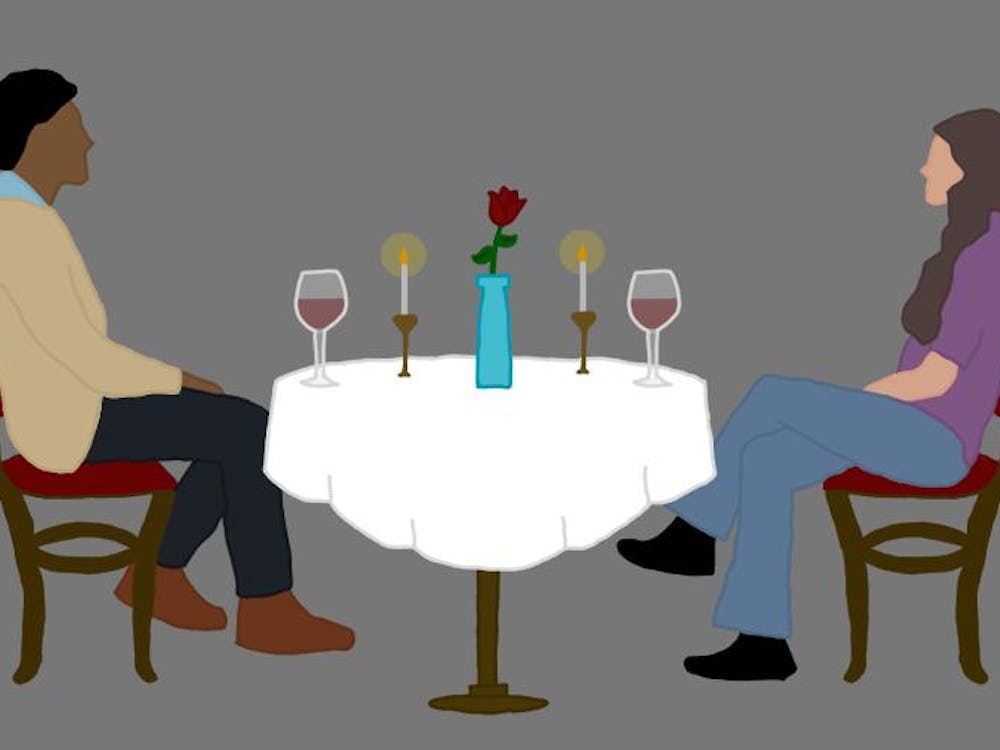"Sabbatical." "On leave." "Semester off." These phrases often pop up in discussion about University professors taking breaks from teaching. But what do they really mean?
According to the University Web site, there are many different kinds of leaves of absence. A frequent reason for sabbaticals is when a professor takes time off to work on projects, which usually requires permission and possibly a grant from the department. A professor can be "on leave" while still working on Grounds, although most professors travel to other universities or even across the globe.
Creative Writing Prof. John Casey explained that holding a special position in the department can result in the privilege of time off from teaching.
"If you have a chair, after every six semesters you get one off," Casey said.
Casey has an even more unique position because he only works as an active professor "half-time."
After teaching in a full-time position for many years, Casey was given a grant in 1992 to write a novel. After receiving the grant, he took some time off from teaching for a few years and now has an unpaid sabbatical in the fall and teaches during the spring.
Casey said his novel has been a long-term project over the years.
"I am rewriting a novel I already rewrote because it was a mess," he said. "Five years ago, I put the rough draft aside, and now I am working on it again."
During his time off, Casey said he lives his normal life and works on his novel when he can.
When considering how his leave may affect students, Casey said he serves as the advisor for the University Crew team, but because he is not very involved with them, his absences do not cause problems.
"I don't do too much," he said. "I just sign some papers for them."
Although Casey does not think his absence has a negative impact, some students may be more affected by other professors taking sabbaticals.
When third-year College student Ariel Holland attempted to sign up for her advising appointment a couple weeks ago, she discovered that her advisor had no appointments available. After e-mailing the psychology department to ask what she should do, Holland was informed that her advisor was on leave this semester and was not in the state of Virginia.
According to Prof. James Freeman, psychology director of undergraduate studies, this situation occurs fairly often within the psychology department. While he cannot speak for other departments in the University, Freeman said when a psychology professor goes on leave he or she is expected to "at least" send an e-mail notifying his or her advisees. Freeman said he sends an e-mail to all of the psychology students during advising time as well to notify students of what to do if their professor is not available.
Yet, as with Holland, some students are uninformed about leaves of absence. These problems are solved fairly easily, though. Freeman said a student usually contacts the department when he or she encounters problems and is then informed of the circumstance.
Freeman takes on the advisees of psychology professors who are on leave in addition to his own advisees to make sure no student is left out.
"During advising -- especially the first week because it is for majors -- I see a lot of people," Freeman said.
Holland said while she was surprised at the news of her advisor taking a sabbatical, making a new appointment did not cause her any substantial problems.
"I thought that he would have sent out an e-mail or something to inform us," Holland said. "But it was easy to set up an appointment [with Freeman]."
Holland said there were disadvantages to the situation because she had not yet met her advisor.
"It was kind of annoying because it would have been nice to talk and build a relationship with my advisor," Holland said. "I would have liked to talk about grad school or something."
In the end, Holland said it was not a big hindrance.
Furthermore, professors taking time off may even benefit students, as Religion Prof. Charles T. Mathewes pointed out. Mathewes is working on three projects: editing a book he finished over the summer, doing research on comparative religious ethics for a new book and working on a book that is a response to September 11. Mathewes also is editing an academic journal.
Mathewes said the sabbatical is useful because he can accomplish things he does not normally have time for during the semester.
"The main purpose of the sabbatical is to finally get projects out of my head," he said.
How do these projects positively affect students? Mathewes described what he termed a "feedback loop" with the projects professors work on and what professors teach in future courses.
"All of these books [worked on] end up being useful for students here," Mathewes said.
Mathewes said sabbaticals are also useful because they can give a professor time to keep up with recent developments in academia.
"You read and catch up on important things and recent findings," he said. "And get clear in the head, and maybe contribute to the field, too. By doing that, you can come back with a better sense of what's going on in the field and what students need to know, as well as being invigorated and refreshed."
Mathewes said he would recommend taking sabbatical to other professors not only to expand their knowledge but for personal reasons as well.
"It is nice to step outside the rhythm of academic life and to get a fresh eye on things," he said. "Intellectually, it gives time and space to think through thoughts and where the field is going. Pedagogically, you come back refreshed and sharper and with new knowledge to help students."
Mathewes said the leave not only can improve a professor's outlook for the next semester of teaching but also for his or her career as a whole. Instead of just thinking about how he or she instructed the last semester, a professor can totally revamp his or her focus, he said.
"With the sabbatical, you have a resting point within the greater rhythm and can ask questions about the meaning of your whole academic career," Mathewes said. "It is a nice disruption that gives you liberty to ask questions you might not otherwise be able to ask."






